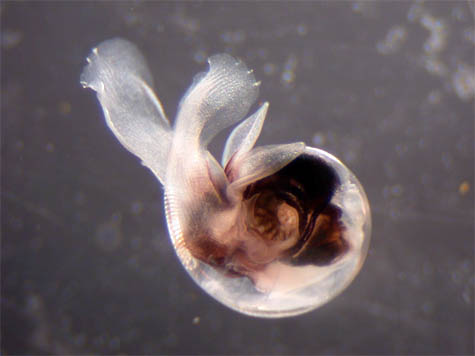UCSB Scientist: “Potato Chip of the Ocean” at Risk
Antarctic Mission Indicates Danger for Oceanic Food Systems

Gretchen Hofmann, associate professor of biology at UCSB, has recently returned from what she termed an “urgent mission” in Antarctica in which she gathered and studied the small, lentil sized marine snails known as pteropods. The “potato chip” of the ocean, as Hoffman refers to the snail, is a vital contributor to the marine food chain, as it is eaten by a wide variety of small fish that are then consumed by larger animals such as penguins.

A molecular ecologist, Hofmann found that these snails are becoming increasingly stressed and agitated by a rise in oceanic acidity resulting from atmospheric carbon dioxide build-up. “If we lose these organisms, the impact on the food chain will be catastrophic,” Hoffman said in a press statement. She said she has found that with the increase in the acidity, animals have had to change their metabolisms. This makes the animals less tolerant of warm water and causes them to be smaller in size. “These observations suggest that the warming and acidifying seas will be a complex environment for future marine organisms,” said Hoffman, who said she intends to continue her studies on oceanic carbon dioxide levels, and the results it will have on humanity.



